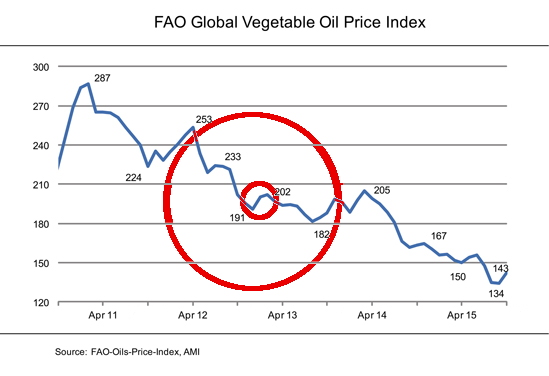 |
Imperfecto vs. imperfecto progresivo/continuo |
As you will already know, Spanish has several translations for the English past continuous/progressive. Two of the forms that are often confused are the imperfect (cantaba) and the imperfect continuous (estaba cantando). They can both be used to describe events in progress at a particular moment in the past.
Similar to the presente progresivo, there is a grey area where the event may be considered in progress or more circumstantial or background information, e.g. 'Los sirios huyen/están huyendo de la guerra', which in the past could be 'los sirios huían/estaban huyendo de la guerra'. The choice partly depends on the duration and nature of the event and the contextual time-frame chosen.
In general, when the event is truly underway, the continuous places more focus on that action, moving it from background information and establishing the time-frame around it. The continuous is also favoured with 'atelic' events –activities that have no clear beginning or end. Note that the continuous is far more common in spoken Spanish, where the speaker doesn't tend to adorn the narration with background information and hence where there is more likelihood of ambiguity.
"Los textos muestran que «estar + gerundio» se usa de forma preferente con verbos que denotan actividades, es decir, eventos sin límite natural, como en 'estuvo (esperando - lloviendo - manejando - mirando - pensando - trabajando - viviendo). De hecho, en la lengua hablada «estar + gerundio» es la forma usual para expresar que una acción durativa está en curso en el momento del habla (en presente) o en un momento anterior (el imperfecto)". RAE
"[...] el lenguaje oral muestra preferencia por la perífrasis 'estar + gerundio', mientras que el escrito prefiere el Presente o el Pretérito Imperfecto [...] Las formas Progresivas, mucho más especializadas en su uso, eliminan el riesgo de ambigüedad."2
The imperfect is used more in written Spanish to paint a picture: 'El capote amarillo del taxi, que en aquel momento doblaba la esquina', la reconfortó; 'en ese preciso momento el mayordomo bajaba las escaleras'.
Before deciding on the best verb mode, first we must make sure we are indeed dealing with an event in progress and not one of the other uses of the imperfect:
Imperfecto
1. for past habits (cíclica, iterativa, habitual1)
1a) -Ese ex tuyo era un cabrón. ¿Te acuerdas de aquel día que te iba arrastrando por la calle?
-Sí, me hacía mucho daño — Yes, he was was hurting me a lot / he used to hurt me a lot (possibly ambiguous)
→Sí, me estaba haciendo daño — Yes, he was was hurting me a lot (clearly in progress in that moment)
b) Cuando me volví a España, Juan aún no hablaba con su madre —When I returned to Spain, Juan still wasn't speaking with his mum (cíclica, iterativa, habitual1)
2. when the event hasn't actually started yet (imperfecto de conato2)
2a) Salía de casa hacia mi trabajo, cuando sonó el teléfono — I was heading out (about to head out) for work when the phone rang [about to happen - imperfecto de conato 2]
→Estaba saliendo de casa hacia mi trabajo cuando sonó el teléfono — I was heading out the door for work when the phone rang [in progress, stepping out the door]
b) Tenía que apresurarme porque llegaba tarde — I had to rush because I was running late [ I was going to be late, I wasn't actually late yet - imperfecto de conato2 ]
c) Juan ya se iba — Juan was leaving [About to leave]
3. referring to arranged or planned events (imperfecto prospectivo3)
3a) Ese día Juan corría un maratón y fui a verle — That day Juan was running a marathon, and I went to see him [arrangement, not necessarily in progress - imperfecto prospectivo3]
→Cuando lo vi, estaba corriendo a toda hostia hacia la meta — When I saw him he was running at full speed towards the finishing line [in progress at that very moment]
b) Tuve que salir del trabajo antes ese día porque Juan se casaba — I had to get out of work early that day because Juan was getting married [arrangement not necessarily in progress at that moment - imperfecto prospectivo3]
The tricky part comes when differentiating between background and events in progress, which are often the same thing. To illustrate this, look at price graph below. Your friend has shares in vegetable oil.

Looking back at this graph, you could say 'casi le da un infarto cuando vio el telediario: los precios de sus acciones bajaban, pero ese día estaban subiendo tan rápido que no se lo podía creer'. Curiously, at the same point in time the prices are both rising and falling, depending on what time-frame you choose to take as your 'present' in the past. By using the imperfect continuous you are changing the referential time-frame.
To contrast the two tenses, take the Syrian example mentioned in presente progresivo: you are on holiday in Greece and you see a group of Syrians playing football next to a refugee camp. Your friend asks you '¿Qué hacen los sirios aquí?' - What are the Sirians doing here?, to which you could reply 'Huyen de la guerra'.
Looking back from the future, if you zoom in to the time-frame of the football, you could bring that into the foreground and say 'Cuando estaba de vacaciones en Grecia el año pasado, los sirios huían de la guerra. Recuerdo que vi un campamento de inmigrantes sirios. Los niños estaban jugando al fútbol junto a las tiendas'. Here we have taken the playing football as the focal point and the time-frame; huir moves into the background.
Conversely, if you pan out, you could say 'El año pasado estuve en Grecia. Recuerdo que los sirios jugaban al fútbol, dormían en tiendas y hacían amigos, pero en el fondo sabían que estaban huyendo'. Here estar huyendo is the main event that's unfolding, while the rest are circumstantial details; by using the present continuous you are zooming out to put 'estar huyendo' as your time reference.

As mentioned in present simple uses, it partly depends on what we consider to be 'now'. The present continuous is used for events which are in the middle of happening now. 'Here' and 'now' are relative, though.
Generally, we share a common time and space notion. 'Ahora están huyendo' - Ahora could mean months or years if referring to the Syrians in general, or it could refer to minutes or hours if referring to individuals in a more literal sense of the word 'huir'. With 'Ahora están jugando al fútbol', 'ahora' means minutes or hours. 'Ahora Juan está comiendo una manzana' is measured in seconds or minutes. 'Ahora está mordiendo la manzana' lasts only seconds.
Compare
4a) Juan se marcha y llega otro amigo.
-¿Qué decía Juan? — What was Juan saying? /What did Juan have to say? (not necessarily speaking at that moment, describing events around that time)
-Pues nada, que su madre le está dando la lata como siempre
b) ¿Qué estaba diciendo Juan? — What was he saying? (what was he actually saying in that moment)
- ¿Cuándo?
-Hace un momento, parecía enfadado
5) Cuando llegué a casa, Juan estaba hablando con mi madre —When I got home, Juan was speaking with my mum (at that specific moment the event was in progress, bring 'speaking' into the foreground, 'hablaba' would be more circumstantial)
Esa tarde, al llegar a casa tuve la sensación de pertenecer a ese barrio. Los niños jugaban fuera y los vecinos hablaban en voz baja, contando batallitas — When I got home, I felt I belonged in that neighbourhood. The children were playing outside and the neighbours were speaking quietly, talking about old times (using the imperfect instead of continuous places the events into the background, making them less vivid, more circumstantial)
Note that verbs of movement such as ir, venir, andar, volver and regresar are usually used in imperfect even when the events are in progress.
-Lo vi en la calle. Venía hacia mí .... — I saw him on the street. He was coming towards me...
˜
-Imperfecto vs Imperfecto progresivo/continuo-

